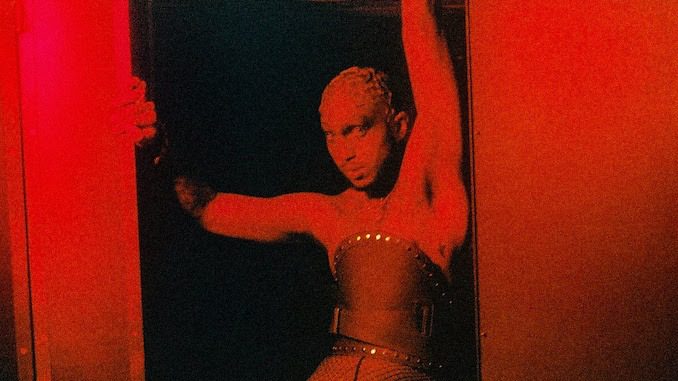Not long ago, I interviewed a musician who told me that sad songs are an overused party trick. I’d never thought about it like that, like maybe there is too much melancholia pouring out of our speakers at any given time. Yes, I said back to her, there are far too many sad songs. Too many to count. Upon sitting with it further, though, I remembered that the never-ending supply of sad songs properly matches the swell of emotions that are bubbling over, always—that having mass quantities of something doesn’t necessarily mean there’s nothing left for it to say. The songs that stick with us are often the ones that have articulated familiar feelings well enough to open new doors.
The question of “Where were you on October 5th, 1992?” invites many answers. I have mutuals on Twitter who were kids at that point and remember the era well: George Bush was ousted by Bill Clinton, the Mall of America opened, Cartoon Network started, the most recent Constitutional amendment was ratified. Some of my friends are still trying to comprehend how any of that was 30 years ago. I was not alive and my parents had not yet met each other. But two things happened on Oct. 5: New York congressman Alphonse D’Amato filibustered the Senate for 15 hours and 20 minutes, and Athens rock band R.E.M. released Automatic for the People, which would go on to sell over 18 million copies.
Around the time the record was released, there were rumors spreading that frontman Michael Stipe was dying of AIDS, given his newfound hair loss and skeletal frame. Stipe wasn’t HIV-positive, though. He was just a skinny, balding white man. The band had also done an intense and exhausting arena tour for 1989’s Green, and hadn’t traveled the world since. Those rumors about Stipe’s health, though, when propped up against the despair populating Automatic for the People’s tracklist, only amplified the buzz around the album further, and emphasized the timeliness of its themes.
The truth of it all is simple: R.E.M. had become older, wiser and sadder. The songs from Automatic for the People offer a complexity the band had not yet honed; there was a resonance in the album’s perspective on life’s mortality and loss. Their preceding albums were more buoyant. The landscape of Out of Time, in particular, was brimming with genre experiments the band hadn’t yet mustered up the guts to take ownership of.
Finding Automatic for the People, especially as a young, closeted queer kid in rural Appalachia, was like reaching that part of a freeway where the city’s skyline is finally, beautifully, in view. There was a glow within its despair; a rendering of hope beyond mourning. It was then, upon that discovery, that I fell in love with the act of being vulnerable in song. To be sad in front of millions is an undertaking that takes a certain kind of courage I cannot even begin to unpack. R.E.M. is not an inherently sad band. Their best-selling album just happens to be a collection of sad songs.
Surely, though, Stipe’s balding mirrored the bareness of Automatic for the People. The record reckons a lot with nostalgia, but, more specifically, it embraces the inevitability of your past eluding you. That theme directly clashes with R.E.M.’s career at the time. In 1992, they were the biggest band in the States. Even though 1991 saw the releases of some of the decade’s greatest rock albums (Nevermind, Badmotorfinger, Blood Sugar Sex Magik, Ten and Loveless, to name a few), R.E.M. ruled the planet, fresh off Out of Time, which was vaulted into the mainstream by Grammy Award-winning, Billboard top-five hit “Losing My Religion.”
By 1992, the band was 10 years old, long gone from their debut EP Chronic Town. And as the world of rock and roll was embracing its new wave of grunge, labels were trying to discover their own Nirvana or Pearl Jam. The fact that R.E.M. were on top of the world at a time when the world was turning away from their sound is a marvel. But, as rock and roll was swelling into loud, distorted guitars, R.E.M. was stripping down to strings and piano keys. And that is, maybe, one of their greatest accomplishments. Even the pillars of grunge were propped up on the backs of bands like R.E.M., and Kurt Cobain wrote in his infamous journals that Green was one of his favorite albums ever.
Though opener “Drive” is this dark, porcelain acoustic ballad that perfectly encapsulates what the rest of the album is meant to be, Automatic for the People is often defined by its fourth single, “Everybody Hurts.” The song’s instrumental has backed the recurring “Celebrities Read Mean Tweets” segment on Jimmy Kimmel Live! since 2012 and is typecast as the cliche soundtrack of despair. Where “Drive” atoned for how we emotionally bend under too much pressure, “Everybody Hurts” is this great and harrowing song about how widespread that idea of “too much” really is. What Automatic for the People vaulted into the zeitgeist was the coming-of-age understanding of finding community in turmoil.
Because there’s a piece of all of us in Automatic for the People, really. I see my grandfather, with a body full of carcinogens, in a hospice bed, in “Try Not to Breathe,” in which an elderly man reflects on his long life while on the brink of death. Recently, in the early throes of a breakup in a city I could not afford to live in, I was uncertain of what bed I’d fall into by each night’s end—“The Sidewinder Sleeps Tonight,” a cheeky riff on The Tokens’ “The Lion Sleeps Tonight,” was a mature revamp of fan-favorite “Stand,” featuring an unnamed protagonist, similarly, without a place to stay. “Nightswimming,” with accompanying strings from Led Zeppelin’s John Paul Jones, was, quite literally, about the band night-swimming in a pond on private property in Athens in the late 1970s, but it transports me to teenage friendships gone their separate ways, or the hope of bottling some kind of adolescent ecstasy forever.
My favorite moments on Automatic for the People come in “Man On the Moon,” the band’s plucky, infectious, strange pop ode to the late comedian Andy Kaufman. The song quickly became Gen X’s “Candle in the Wind,” and the title was a parallel between the moon landing conspiracy and rumors that Kaufman faked his death in 1984. When guitarist Peter Buck called it a “surrealist version of Heaven,” perhaps he was thinking of Stipe’s Elvis vocals. R.E.M.’s baroque kaleidoscope was the perfect tribute to the king of gonzo comedy. Kaufman was beloved by many, and the affection the band held for him signaled an even greater kind of intimacy.
The ways in which we discover music are channels of limitless communion. I am a romantic in that regard, especially overjoyed by the plentiful pleasures of falling in love with something shared by a stranger. I am also a believer in fate, but not the kind that hinges on some sort of universal algorithm that brings two things together. The fate I worship has everything to do with translation, how we are all, somehow, destined to make art out of the parts of us that hurt the most.
I’d known about R.E.M. from the inclusion of “It’s the End of the World as We Know It” in Tommy Boy and remembered “Shiny Happy People” playing briefly in an episode of Friends, but it wasn’t until Jeff, the owner of the Record Connection in Niles, Ohio, turned me on to Automatic for the People sometime in 2014 that I finally understood them.
I’d just gotten my driver’s license and would make the 15-minute trip out to the vinyl emporium once a week. As I thumbed through every record in every crate, Jeff pointed to the “R” section and asked if I’d heard of R.E.M. before. “Of course,” I said, because, of course I knew them. The last time I’d stopped by, I picked up a copy of the Red Hot Chili Peppers’ One Hot Minute, so he told me to check out Monster, the uneven, but bright, underrated follow-up to Automatic for the People. I suppose he inferred that I was on a “disappointing albums of the 1990s” kick, but I was drawn to the cover of Automatic instead, which donned a star ornament from the Sinbad Motel sign on Biscayne Boulevard in Miami, Florida. I was entranced by the title, which drew from a phrase that Dexter Weaver, the owner of Weaver D’s Delicious Fine Foods, would say to customers instead of “you’re welcome.” It felt so robotic, so mechanical, so bare. The grayness that enveloped the entire outer shell of the LP felt indicative of what lived within it, though I hadn’t heard a single minute of it yet.
And at that point in my life, I was consumed by grayness. I’d just hit one year on hormone therapy and my family was toeing the poverty line after my dad was fired from his job. When you are on the ropes, even the conquerable parts, like making breakfast and walking the dog, feel exponentially heavier. On “Try Not to Breathe,” Stipe sings, “I want you to remember,” and, of course, I did. The way my dad walked through the door, his mind pondering the unemployment forms to be filled out, a light breaking through the kitchen window and resting on the shirt patch of his now-former workplace, it allowed me to lean into the obvious grief that was waiting for me. It was not spurred by a monetary loss, but by a change in routine. I’d soon leave for school while my dad slept in and later come home to him on the couch, watching the day’s fourth SportsCenter rerun. Like death and its inexplicable sorrow, we are never prepared for the unevenness of loss. But there always comes a day when we become accustomed to its presence without batting an eye.
I struggle to write about happiness. My poetry is deeply unsettling in its own darkness; my essays tend to follow suit. I don’t go out much, nor do I make friends as easily as I’d hope. Perhaps that is a detrimental part of my own doing that I’ve yet to shake. I had a garage sale last weekend and someone told me I looked tired. There was a sunset that evening that shook away the day-long clouds and, for once, I attempted to walk straight toward it, rather than wait for it to fall into me.
I’m getting worse at letting go of things, but I am getting better at having hope. Sad songs are overdone and we absolutely do not need more of them in this lifetime. But then again, maybe we do. Because as each midnight gives way to a sunrise, we are tasked with feeling a thousand new things. When Stipe giggles while singing the “Call me when you try to wake her up” chorus of “The Sidewinder Sleeps Tonight,” I’m struck by his ability to tumble through the agony with a smile. If the architecture of popular music is worth any kind of damn, it’s in how it articulates our sunken stomachs knotting with anxiety. So often, the world doesn’t relent in the face of our grief, but, even 30 years later, Automatic for the People asks us to pause and feel it anyway.
Matt Mitchell is a writer living in Columbus, Ohio. His writing can be found now, or soon, in Pitchfork, Bandcamp, Paste, LitHub and elsewhere. Find him on Twitter @matt_mitchell48.
Hear a 1998 R.E.M. performance from the Paste archives below.



